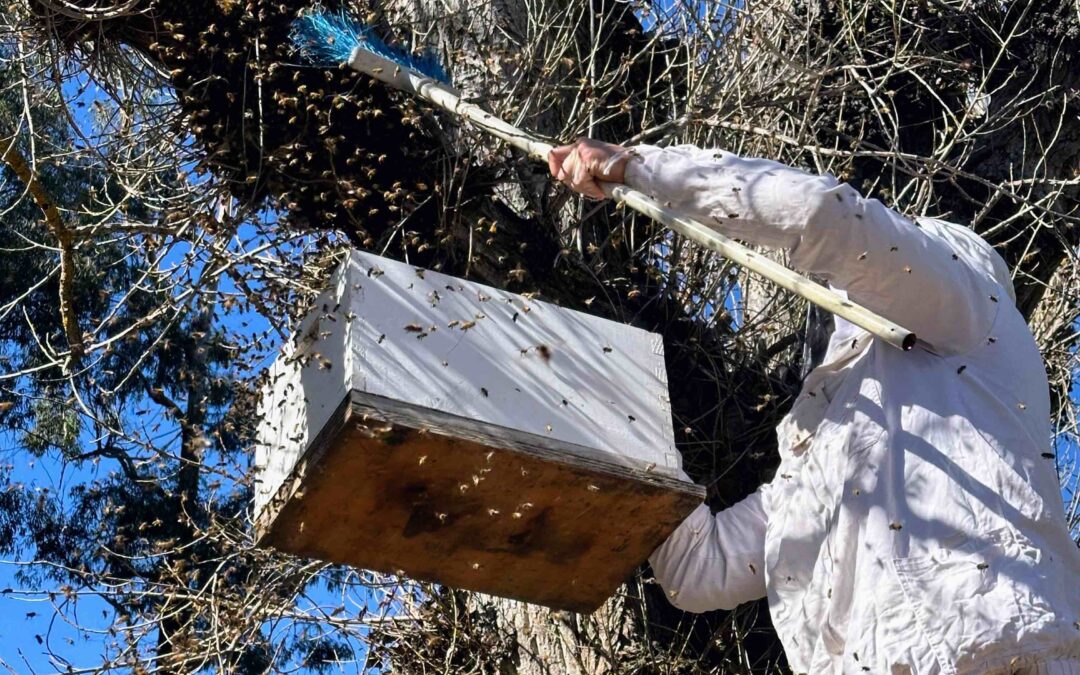In the Bay Area, May is a crucial time for beekeeping due to the moderate climate and abundant floral resources. Here are some key tasks and considerations for managing your beehive during this month:
- Swarm Prevention and Management: May is peak swarm season. Regularly check your hive for signs of overcrowding and swarm cells (queen cells at the bottom of frames). If you find these, consider making a split to create a new hive or managing the space in the hive more effectively.
- Hive Inspection: Conduct thorough inspections every 7-10 days to monitor the health of the colony, the queen’s performance, and any potential pests or diseases. Look for a healthy pattern of brood, sufficient stores of pollen and honey, and signs of pests like Varroa mites.
- Supering: To accommodate the spring nectar flow, add supers (extra boxes with frames for honey storage) as needed. This not only provides space for honey but also helps prevent swarming by giving bees more room to work.
- Feeding: If the nectar flow is slow or the weather is unusually cool, you may need to feed your bees. Use a sugar syrup (1:1 ratio of sugar to water) to help them until natural nectar becomes plentiful.
- Pest and Disease Management: Keep an eye out for pests like Varroa mites and diseases such as American foulbrood or Nosema. Consider treatments if necessary, but be mindful of the timing and type of treatment, especially during honey flow periods.
- Queen Evaluation: May is a good time to assess the performance of your queen. If your queen is over two years old or if there’s a noticeable decline in her laying pattern, consider requeening the hive.
- Record Keeping: Maintain good records of all your inspections, treatments, and any issues you notice. This will help you track the health and productivity of your hive over time.
- Community Engagement: Connect with local beekeeping clubs or associations for additional support and to stay updated on any regional issues affecting bees.
By staying proactive and attentive to your hives in May, you can ensure the health and productivity of your bee colonies as they enter the busiest part of the beekeeping year.

